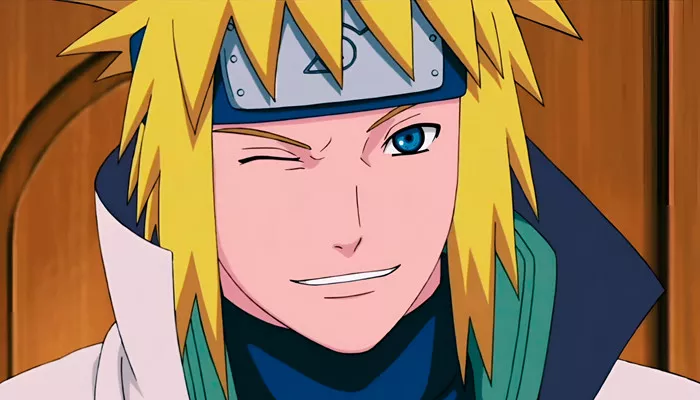Naruto Uzumaki, the beloved protagonist of the Naruto series, achieved his long-held dream of becoming the Seventh Hokage. This title, which represents the leader of the Hidden Leaf Village (Konoha), was a culmination of years of hard work, perseverance, and personal growth. However, as the story transitioned into Boruto: Naruto Next Generations, fans were shocked to discover that Naruto is no longer in this prestigious position. This article will explore the reasons behind Naruto’s departure from the role of Hokage, examining key events in the Boruto series and the implications for both Naruto and Konoha.
The Rise to Hokage
Naruto’s journey to becoming Hokage was marked by numerous challenges and adversities. As a child, he faced ostracism and loneliness due to being the host of the Nine-Tails fox spirit. Despite this, he remained determined to gain recognition from his peers and ultimately sought to protect his village. His unwavering spirit led him to form essential bonds with friends and allies, culminating in his victory against formidable foes such as Pain and Kaguya Otsutsuki.
After defeating Pain, Naruto was finally acknowledged by the villagers and earned their respect. His ascension to Hokage was not merely a reflection of his power but also his growth as a leader who valued unity and peace. However, this role came with immense responsibilities that would later prove challenging for him.
The Events Leading to His Departure
The transition from Naruto to Boruto introduces significant changes in the narrative landscape. One of the most shocking developments is Kawaki’s betrayal. Kawaki, who was initially portrayed as an ally and adopted son to Naruto, becomes a central figure in the events that lead to Naruto’s downfall as Hokage.
Kawaki’s Betrayal
In a pivotal moment at the end of the first part of Boruto, Kawaki uses a powerful technique called Daikokuten to seal both Naruto and Hinata in another dimension. This act is driven by Kawaki’s desperation to eliminate threats posed by the Otsutsuki clan. Unfortunately, this decision has dire consequences for Konoha, as it leads everyone to believe that Naruto is dead. The villagers’ perception is manipulated due to a phenomenon known as Omnipotence, which alters memories and realities.
The Impact on Konoha
With Naruto believed dead, Konoha faces a leadership crisis. Shikamaru Nara is appointed as the Eighth Hokage in Naruto’s absence. This decision highlights not only the urgency of governance but also reflects on Naruto’s inability to fulfill his duties due to his imprisonment in another dimension. Despite being alive, he cannot perform any responsibilities associated with being Hokage.
The Challenges of Leadership
Naruto’s tenure as Hokage was fraught with challenges that ultimately contributed to his inability to continue in this role.
Emotional Attachments
One significant aspect that hindered Naruto’s effectiveness as Hokage was his emotional attachment to those around him. While this trait made him a compassionate leader, it also led him to make decisions influenced by personal feelings rather than strategic necessity. In critical moments during battles, such as when Boruto was threatened by Momoshiki’s influence, Naruto struggled to detach himself emotionally. This vulnerability raised concerns among other leaders about his capability to make tough decisions when necessary.
Workload and Responsibilities
The workload associated with being Hokage is immense. As depicted in Boruto, Naruto often appears exhausted and overwhelmed by paperwork and administrative duties. His inability to balance these responsibilities with personal life led him to miss important family events, further straining relationships with his loved ones. This disconnect between his duties as Hokage and his role as a father became increasingly evident throughout Boruto.
A Shift in Focus
Naruto’s character development also reflects a shift in focus from active combatant to bureaucratic leader. While he excelled in battle during his youth, managing Konoha required different skills—political acumen and strategic foresight—which he struggled with at times. His tendency towards naivety mirrored earlier Hokages like Hashirama Senju, who faced similar challenges due to their emotional investments.
The Consequences of His Absence
Naruto’s absence from Konoha has significant implications for both the village and its inhabitants.
Leadership Vacuum
With Shikamaru stepping up as Hokage, there is an immediate need for stability within Konoha. Shikamaru’s leadership style contrasts with Naruto’s; while he is more pragmatic and strategic, he lacks Naruto’s charisma and emotional intelligence. The villagers must adapt to this new leadership dynamic while grappling with their loss.
Perception of Heroes
The narrative shift also impacts how heroes are perceived within the story. Characters like Boruto must navigate their identities without their father’s guidance. This generational conflict adds depth to Boruto, exploring themes of legacy, expectation, and personal growth.
Conclusion
Naruto Uzumaki’s journey from an outcast child to the Seventh Hokage is one filled with triumphs and tribulations. However, through unforeseen circumstances involving Kawaki’s betrayal and his subsequent imprisonment in another dimension, he can no longer fulfill his duties as Konoha’s leader. This transition not only affects Naruto but also reshapes Konoha’s future under new leadership.
As fans continue to follow Boruto: Naruto Next Generations, they witness how these changes influence relationships and power dynamics within the village. Ultimately, while Naruto may no longer hold the title of Hokage, his legacy continues through those he inspired—reminding us that true leadership often transcends titles and positions.
In summary, understanding why Naruto is no longer Hokage requires an examination of character development, emotional complexities, and evolving narratives within both Naruto and Boruto. These elements combine to create a rich tapestry that reflects on what it means to lead in times of crisis while highlighting personal sacrifices made along the way.
Related topics:
- How Did Megumi Stop Sukuna?
- Who is the 3 Strongest in Jujutsu Kaisen?
- Jujutsu Kaisen Season 3: Everything You Need to Know


